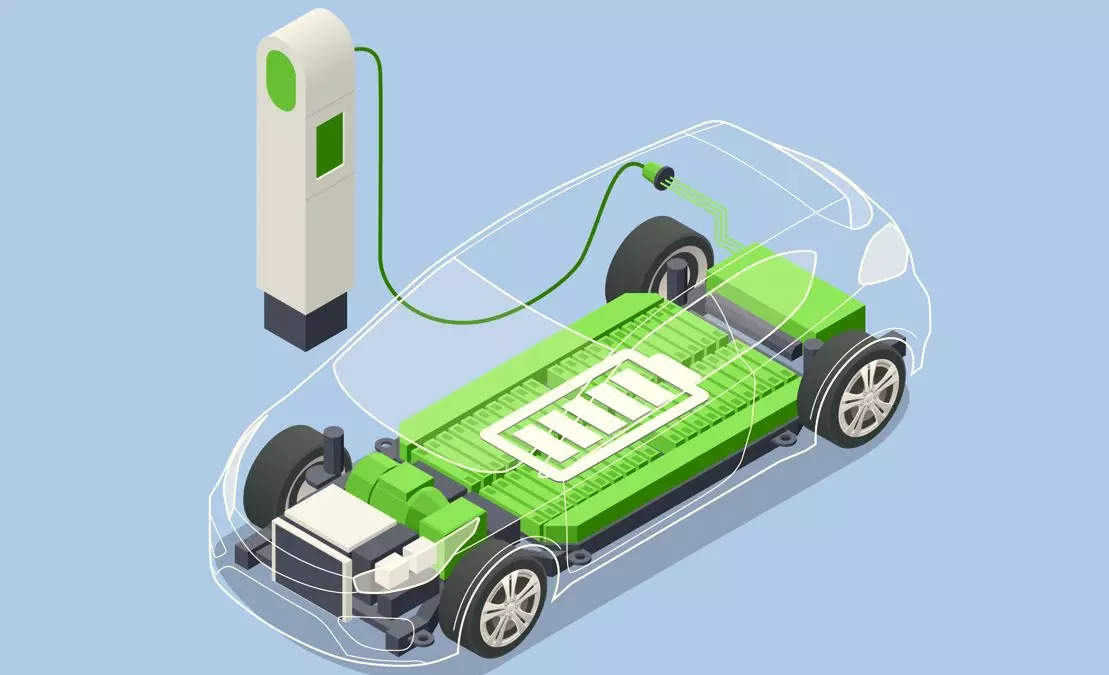
New Delhi: The Ministry of Road Transport & Highways (MoRTH) has extended the implementation of additional provisions in the battery safety standards and has allowed electric vehicle battery makers more time till March 31, 2023 in 2 phases beginning from December 2022.
According to an official statement, the additional provisions in the battery safety standards, which were to be implemented from October 1, 2022, will be introduced in two phases from December 1, 2022 (Phase 1) and March 31, 2023 (Phase 2).
“For the OEMs to be better equipped to comply/implement the provisions prescribed under the standards AIS-156 and AIS-038 (Rev 2), the Ministry has decided to implement the Amendment 3 of the said AIS, in two phases…”, MoRTH said in an official statement on Tuesday.
Following several fire incidents in EVs in the recent past, the road transport ministry notified the new EV battery rules on September 1, giving less than a month to the industry to switch over its entire manufacturing operations, sourcing and certifications to a more stringent set of regulations.
The revised standards call for stricter cell-level safety checks, ingress protection or better insulation and thermal propagation tests to ensure that a thermal runaway in one cell doesn’t spread to other cells in the battery. It also mandates adequate spacing of individual cells in a battery pack, temperature sensors which can send out audio-visual warnings to prevent thermal incidents, and smarter battery management systems (BMS) and chargers.
Industry welcomes extended timeline
The Society of Manufacturers of Electric Vehicles (SMEV) said the acute shortage of good quality battery assemblers in India is forcing some of the manufacturers to even import batteries for their spares and non-registered vehicles by paying much higher duties. The new regulations, if implemented with effect from October would have brought the EV industry to a grinding halt, the apex industry body said.
“We would like to sincerely thank the government for accepting our request to implement the new battery standards in a phased manner. The standards laid down by the government are very important and they will further enhance the safety quotient of the products. The proposed standards necessitate changes in battery design. Hence, the extension of the timeline will allow manufacturers to work on new designs and development and do rigorous testing to ensure effective implementation,” Sohinder Gill, Director General of SMEV, said.
SMEV is requesting all the EV battery manufacturers to immediately draw up a plan to implement the new standards as per the policy guidelines so as to ensure that they gear up their capabilities and capacities to ensure a sufficient quantity of safer batteries to meet the exponential demand of EVs, he said.
“SMEV will assist members to ensure that they strictly adhere to the guidelines so that we should not witness any incident of battery fires and that there is no danger to human lives due to EV battery fires,” Gill added.
Though the industry is confident that the norms will set a high benchmark for the developing EV industry, some startups and established OEMs in this domain earlier raised concern over tight deadlines for transition.
Gautham Maheswaran, CTO and co-founder of Hyderabad-based EV infrastructure startup RACEnergy said most of the amendments listed need design changes and no industry players will be able to comply with all of the rules in such a short period. “The new regulations need modification at the core of the battery pack and vehicle itself which needs proper evaluations and time. There are a lot of new tests that are proposed and validations of these tests coupled with certifications will further consume time,” he added.
Explaining further Maheswaran pointed out that one such example is thermal propagation test and currently there isn’t any lab that conducts this. “We need more clarity in definitions of the amendments and also some time relaxations should be given,” he said.













